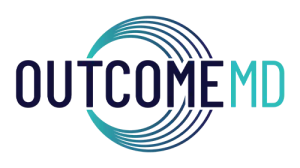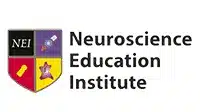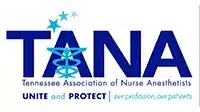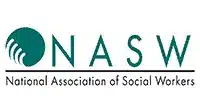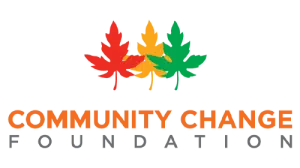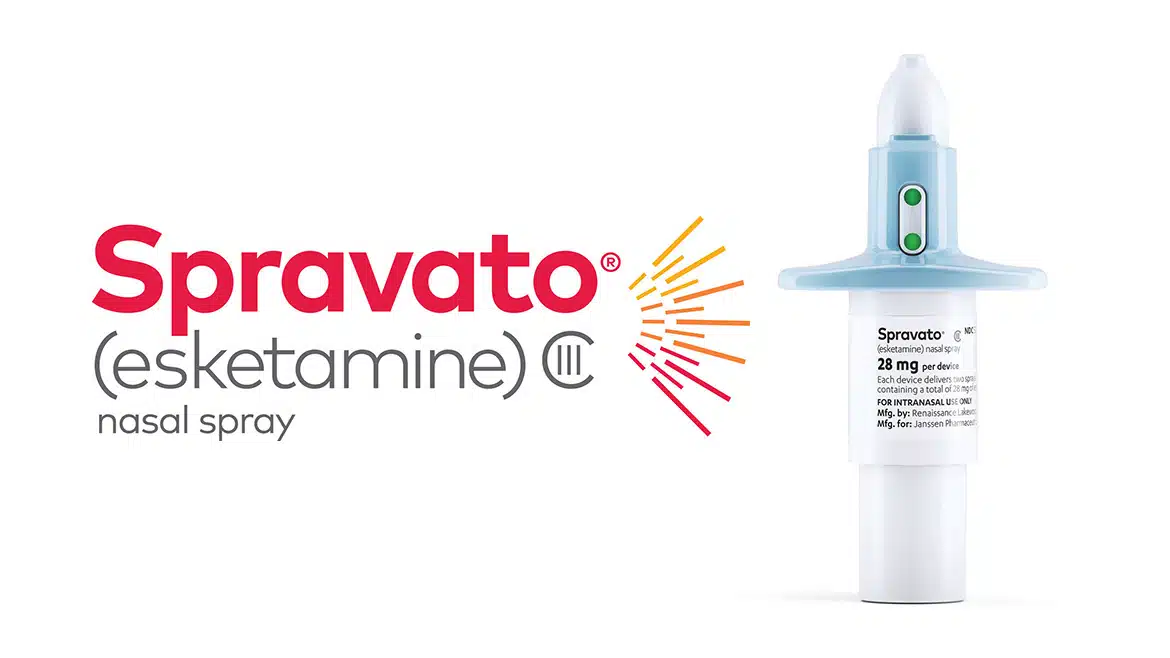- By:By Kathryn A. Walker
PTSD
Ketamine Treatment for PTSD: A New Horizon at Revitalist
Post-Traumatic Stress Disorder, commonly referred to as PTSD, is more than just a response to a distressing event—it’s a complex mental health ailment that profoundly affects the very fabric of an individual’s daily life. Emerging in the aftermath of intense traumatic experiences, whether directly experienced or witnessed, PTSD can profoundly disrupt an individual’s psyche.
Often misunderstood, PTSD is not merely about “moving past” or “getting over” the traumatic episode. Instead, it presents as a continuous battle, marked by persistent, often haunting memories that play on loop, a constant state of hyper-awareness, almost as if waiting for the next threat, and an overwhelming sense of emotional desolation or numbness. This state can cause individuals to feel trapped, reliving their trauma in different ways, every single day.
But where does one find solace amidst such relentless emotional turmoil? The world of medicine, always evolving, is ceaselessly in pursuit of more effective treatments for conditions like PTSD. Traditional therapy and medications can often provide relief, but for some, the search for a more immediate and lasting respite continues.
This is where Revitalist steps in. With our unwavering commitment to understanding and alleviating the burdens of mental health conditions, we’ve delved deep into research and patient experiences. In doing so, we’ve recognized the potential of an unexpected ally: ketamine. Originally known in the medical world as an anesthetic, its promise in the realm of PTSD treatment is rapidly emerging as a beacon of hope for many. At Revitalist, our mission is not only to offer this innovative treatment but to do so with the utmost care, ensuring each individual is supported every step of the way.
A Brief Overview of PTSD
Post-Traumatic Stress Disorder, commonly abbreviated as PTSD, isn’t just a single response to trauma but a multifaceted mental health disorder that permeates various aspects of an individual’s life. To truly understand the implications of PTSD and the need for treatments like ketamine, it’s vital to delve deeper into its complexities.
At its core, PTSD is the brain’s way of grappling with traumatic events. The human brain is designed to remember and learn from dangerous situations to ensure survival. However, in PTSD, this protective mechanism seems to become hyperactive, resulting in an onslaught of symptoms that disrupt daily functioning.
Primary among these symptoms are the relentless flashbacks, where the sufferer relives the trauma vividly, as if trapped in a time loop. Accompanying these are nightmares that disrupt sleep and intrusive, uninvited thoughts that can strike at any moment, pulling the individual back into the heart of their traumatic experience.
But PTSD doesn’t stop at these cognitive symptoms. Emotionally, it casts a long shadow. Feelings of isolation become commonplace as individuals often feel detached, believing that those around them can’t truly understand their internal struggle. This emotional turmoil is compounded by irritability, outbursts of anger, and overwhelming guilt or blame – sometimes directed inward, other times at the world at large.
Furthermore, the behavioral implications of PTSD are profound. To protect themselves from the onslaught of memories, individuals might actively avoid places, situations, or even people that serve as reminders of the trauma. This can lead to significant disruptions in personal and professional life, and in severe cases, lead to complete withdrawal from society.
Considering these complexities, it’s alarming to note the prevalence of PTSD. With an estimated 24 million Americans wrestling with this condition at any point in time, the urgency for effective, lasting treatments becomes palpably clear. This backdrop sets the stage for the exploration of potential game-changers in PTSD treatment, like ketamine.
Ketamine: An Unconventional Path to PTSD Relief
Ketamine, originally formulated and popularized in the 1960s as an anesthetic, has undergone a significant metamorphosis in the world of medicine. From its primary use in surgical settings to manage pain and induce anesthesia, its role has evolved remarkably, revealing potential in areas of mental health that were once thought insurmountable.
The intriguing pivot of ketamine towards the realm of mental health began with anecdotal reports and preliminary research hinting at its profound impact on depression. But soon, the ripples of its potential reached the shores of PTSD treatment, painting a picture of promise where other treatments sometimes faltered.
What makes ketamine particularly compelling for PTSD sufferers is its rapid action. Unlike many conventional treatments that require weeks or even months to exhibit discernible effects, ketamine has shown to bring about noticeable relief in PTSD symptoms within mere hours to days after administration. This swift alleviation can be game-changing for those ensnared in the crippling grip of traumatic memories and heightened alertness.
Moreover, ketamine’s mechanism of action, which primarily centers around its interaction with the NMDA receptors and its influence on the glutamatergic system, seems to offer a fresh approach. By targeting these neural pathways, ketamine appears to recalibrate the brain’s response to traumatic memories, possibly diminishing their intensity and frequency.
For many living with PTSD, traditional treatments, be it therapy or medication, sometimes don’t bridge the gap between their traumatic past and a hopeful future. Ketamine’s emergent role offers a glimmer of hope, presenting an alternative pathway to healing, marked by rapid response and profound shifts in symptomatology. While it is not the panacea for all, and more research is continually unfolding, its potential in transforming PTSD treatment cannot be understated.
Unlocking the Power of Ketamine for PTSD
Targeting the NMDA Receptors
Central to ketamine’s efficacy is its interaction with the NMDA (N-methyl-D-aspartate) receptors. These receptors play a crucial role in synaptic plasticity, learning, and memory. Traditional PTSD medications often operate on the serotonin or dopamine pathways. In contrast, ketamine’s unique mechanism of action on the NMDA receptors and its influence on the glutamatergic system seems to provide a fresh therapeutic avenue. This difference in pathways might account for its rapid and distinct therapeutic effects.Prompt Symptomatic Relief: A Game-Changer for Many
One of the standout features of ketamine treatment for PTSD is its ability to deliver swift symptom relief. For someone caught in the relentless tide of traumatic flashbacks, nightmares, or paralyzing anxiety, this rapidity can be life-changing. It’s not merely about alleviating symptoms but restoring a semblance of normalcy. The idea that relief can be felt within hours, rather than the conventional weeks or months of waiting, introduces an element of hope that is invaluable in therapeutic contexts.Aiding Traditional Therapeutic Approaches
Ketamine’s rapid relief offers another intriguing advantage: it might enhance the effectiveness of conventional therapeutic modalities, like cognitive-behavioral therapy (CBT) or exposure therapy. With the acute symptoms subdued, individuals might find themselves in a more receptive state, better positioned to engage with therapeutic narratives, confront their traumatic memories, and participate actively in their healing journey. This synergistic effect, where ketamine acts as a catalyst, amplifying the impact of talk therapies, has the potential to redefine PTSD treatment paradigms.A Glimpse into the Future: Long-Lasting Respite
While the immediate effects of ketamine are undeniably compelling, its potential for lasting impact stirs equal interest. Preliminary findings indicate that a series of ketamine infusions might translate to sustained symptom relief for some individuals. This isn’t to suggest that ketamine is a one-size-fits-all solution or that its effects are permanent. Still, the prospect of extended relief, especially for those who have grappled with treatment-resistant PTSD, is invigorating.
In conclusion, as we unravel the intricacies of ketamine’s role in PTSD management, it’s evident that its promise is multifaceted. From rapid symptom reduction to enhancing the potency of established therapeutic approaches, and possibly offering extended periods of relief, ketamine is carving a niche for itself in the PTSD therapeutic landscape. As with any medical intervention, continuous research, patient-centric approaches, and rigorous clinical evaluation remain paramount. However, the horizon looks promising, and for many PTSD sufferers, ketamine might just be the beacon of hope they’ve been yearning for.
The Revitalist Approach to Ketamine Treatment for PTSD
In the tumultuous world of PTSD, where memories cast long, haunting shadows and the present feels ensnared by the past, the search for relief is paramount. At Revitalist, our mission isn’t just about symptom relief – it’s about restoring hope, dignity, and a sense of purpose. Here’s a deeper insight into our comprehensive approach to ketamine treatment for PTSD.
An Emphasis on Comprehensive Assessment
Every PTSD story is different. The triggers, the symptoms, and the coping mechanisms vary immensely. Therefore, our first step is an exhaustive assessment. Through detailed interviews and diagnostic tools, we aim to understand not just the clinical severity but the personal narrative behind the PTSD. This holistic perspective ensures that ketamine treatment, if deemed appropriate, aligns seamlessly with the individual’s needs and medical background.
Customized Treatment, Personalized Care
Understanding that PTSD is not a monolithic entity but a spectrum of experiences, we prioritize personalized treatment protocols. Our team invests time in curating a treatment regime that resonates with the patient’s specific challenges and therapeutic goals. Whether it’s determining the right ketamine dosage, the frequency of sessions, or integrating other supportive interventions, our approach is tailored to maximize therapeutic outcomes.
Creating a Sanctuary for Healing
The environment plays a pivotal role in the treatment experience. We pride ourselves on creating a sanctuary – a space where patients can feel safe, understood, and supported. Every element, from the interiors to the ambient music, is curated to evoke tranquility. Moreover, our seasoned medical professionals ensure that the entire ketamine administration process is smooth, safe, and comfortable. Their vigilant oversight ensures that any potential side effects are promptly addressed, and the patient’s well-being remains paramount.
Beyond the Infusion: Crafting a Continuum of Care
While the transformative potential of ketamine is undeniable, we believe in the power of a multifaceted approach. After the initial treatment phase:
Therapeutic Integration: The introspective and sometimes profound experiences during ketamine infusions can be a rich source of insights. Collaborating with therapists, patients can navigate these insights, weaving them into a tapestry of personal growth and healing. This integration can amplify the benefits of ketamine, providing a more rounded therapeutic experience.
Ongoing Nurturance and Support: Recovery from PTSD isn’t a destination; it’s a journey. And every journey benefits from checkpoints of reflection, recalibration, and reassurance. Our commitment to our patients extends beyond the treatment room. With follow-up sessions, consultations, and a supportive community, we aim to provide a robust scaffold for long-term wellness. Whether it’s adjusting treatment plans, addressing emerging challenges, or celebrating therapeutic milestones, our team remains a steadfast ally in the patient’s healing journey.
In essence, at Revitalist, ketamine treatment for PTSD is not an isolated intervention but a harmonized symphony of science, empathy, and aftercare. We champion a vision where PTSD sufferers reclaim their narrative, steering it towards hope, resilience, and rejuvenation.
A Future Free from Trauma's Shadows
Navigating the complexities of PTSD is akin to traversing a labyrinth where the shadows of the past loom large and the exit seems elusive. Yet, amid this daunting landscape, the emergence of ketamine as a potent therapeutic tool signals the dawn of a new era in trauma-focused treatments.
At Revitalist, our commitment extends far beyond mere symptom management. We envision a holistic healing journey, where each individual, weighed down by the chains of traumatic memories, finds a sanctuary to heal, rejuvenate, and rediscover their inner vitality. Our unwavering faith in the transformative potential of ketamine, combined with our comprehensive care approach, offers a beacon of hope for those enshrouded in the darkness of PTSD.
We pride ourselves on our expertise, but beyond that, it’s our compassion and understanding that make the difference. We recognize that PTSD isn’t just a clinical diagnosis; it’s a deeply personal battle where every flashback, nightmare, and moment of anxiety is a reminder of battles past. With ketamine, the possibility emerges not just to alleviate these symptoms but to fundamentally reframe one’s relationship with trauma, cultivating resilience and a renewed zest for life.
In our endeavor, every story of recovery, every sigh of relief, and every smile reclaimed is a testament to the efficacy of our approach and the potential of ketamine.
So, as we look towards the future, we remain grounded in our mission: to guide every PTSD sufferer out of trauma’s overshadowing maze. If you, or someone you hold dear, grapple with the haunting echoes of traumatic events, know that at Revitalist, a dedicated team awaits, ready to walk alongside you on your path to brighter, more hopeful horizons.
Our Stories and Articles
Discover how Ketamine Therapy Depression Treatment is revolutionizing mental health care and transforming lives.
Introduction A Brief Overview of Depression and Its Impact on Society Depression is a common, yet serious, mood disorder that […]
Introduction to Spravato in Tampa FL, Knoxville TN and Johnson City TN Brief Overview of Spravato Spravato, also known as […]
Revitalist Offers a New Source of Relief
How Does Ketamine Work?
Ketamine has been shown to stimulate neuron growth in the brain in as quickly as one hour. Many scientists studying ketamine are focusing on the neurotransmitter glutamate, which plays an important role in neural activation.
Can My Doctor Refer Me To Revitalist?
The Revitalist Provider Portal allows your doctor to easily, and with much attention to privacy, refer you for consultation. Should you receive treatment, we will communicate with your existing provider(s) regarding your care.
How Soon Will My Symptoms Improve?
More than 70% of patients with treatment-resistant depression (including bipolar patients) experience rapid relief after a low-dose ketamine infusion. Similar success rates have been seen in returning combat veterans suffering from PTSD.
